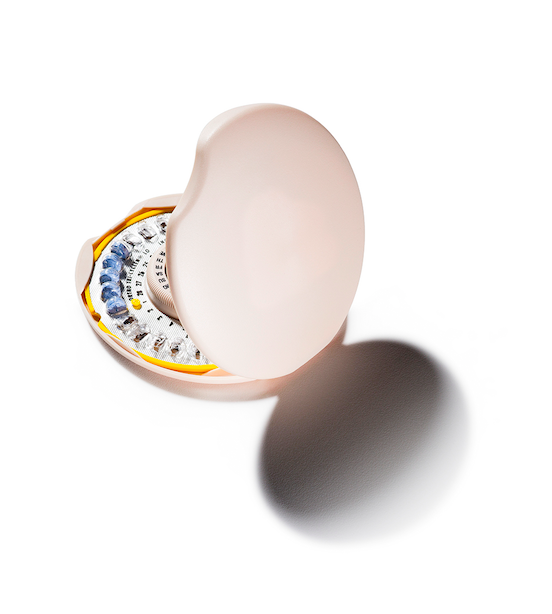Is Your Hormonal Birth Control Making You Depressed?

Photo: Getty Images
If your choice of contraceptive contains hormones, a possible side effect may be a mental health disorder.
A recent study published in JAMA Psychiatry states that women who used a hormonal form of birth control were more likely to be diagnosed with depression and use antidepressants compared with females who did not use the drugs.
Danish researchers tracked more than 1 million women between the ages of 15 and 34 over the course of 10 years. The oral options analyzed were a progestin-only contraception (which mimics the hormone progesterone) and combination contraceptives (which mix progestin with estrogen).
According to the findings, the dual-hormone oral forms of birth control — a popular choice among American women — increased a woman’s chances of taking antidepressants by 23 percent.
Yet the statistics among the younger population — the 15- to 19-year-olds — were even more startling. Those taking the oral combination pills were diagnosed with depression at a 70 percent higher rate than nonusers. And the rate of depression nearly tripled among the teen girls who were using the patch or vaginal rings.
Donald Trump’s Birth Control Plan Is a Wolf in Sheep’s Clothing, Women’s Health Experts Say
“Until now, there hasn’t been any solid data that concluded birth control is associated with depression,” Draion Burch, a board-certified obstetrician-gynecologist, tells Yahoo Beauty.
However, he points out that the rates of depression dropped as the woman continued to use a hormonal contraceptive. “Also, women who began birth control at an older age experienced reduced rates of depression,” Burch adds. “Different types of birth control carried different rates of depression.”
As for the extraordinarily high statistics among the teenage population, he questions if “unstable teen relationships may have led to depression [on their own].”
“I don’t find this study surprising at all,” Sara Gottfried, MD, a gynecologist and author of The Hormone Reset Diet: Heal Your Metabolism to Lose Up to 15 Pounds in 21 Days, tells Yahoo Beauty. “We know that synthetic progesterone in oral contraceptives is associated with mood problems in women.”
She explains that half of people with depression have a problem with cortisol, “meaning a problem upstream with the stress response system,” continues Gottfried. “We know that oral contraceptives make the stress response system less flexible. In other words, you’re less adaptive, you can’t roll with the punches like a ‘normal,’ healthy women, and so you are likely at a greater risk of depression.”
Which Birth Control Gives You Better Skin, and Which Makes It Worse
Gottfried encourages any woman who may be showing signs of depression (common symptoms include decreased energy, difficulty concentrating, inability to make decisions, loss of interest or pleasure in daily activities, outbursts of anger, and/or feelings of guilt and worthlessness) to consult with her health care provider.
“While this study looked at use of antidepressants after oral contraceptives, there are many other women who suffer in silence and don’t seek help from their doctor,” she states. “Instead, they think something is wrong with them, [wondering] why can’t they snap out of it and why can’t they pull themselves up from their bootstraps. The truth is that mood is usually dictated by hormones.”
In order to improve emotional well-being, she advises women to reexamine their choice of birth control, along with making some lifestyle adjustments. For example, consume a nutritionally balanced diet “to fill nutrient gaps, exercise strategically, meditate, and take supplements to prevent and even reverse mood problems,” adds Gottfried.
“But remember, birth control prevents unintended pregnancies and regulates periods,” concludes Burch, “which for some patients is more important than a possible risk of depression.”
Let’s keep in touch! Follow Yahoo Beauty on Facebook, Twitter, Instagram, and Pinterest.